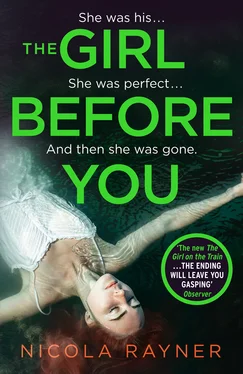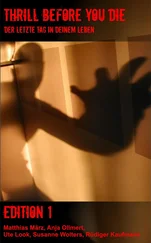The bar was full of tribes – the rich men who’d made their money early in life or inherited and come out to live on the coast; the locals who’d cram the bar on Fridays and Saturdays; or the holidaymakers whose drinking tended not to be bound by which day of the week it was – but our dad didn’t belong to any of them.
Instead, we made a tribe of our own: Ruth and our father with their red hair, my mother and me, with our dark eyes. Neither parent had much tolerance for tales, though we never gave up trying to embroil them both in the ongoing battle of the halfway line, mainly in the car, where it existed as an imaginary border that separated Ruth’s messy side from my neat one.
There were just eighteen months between us. We witnessed the very first moment we met on cine film, a silent movie in muted colours. Ruth, clutching Nunny, her pink toy rabbit, in our grandmother’s arms at the front door, had stretched out to greet our mother as she came back from hospital carrying me in a large white blanket.
‘Baby,’ mouths our mother in the film, tilting my face, peeking through the blanket, towards Ruth.
‘Baby,’ repeats my sister, climbing out of our grandmother’s arms to join me, heedless of the halfway line even then.
Alice Alice Naomi Kat Alice Naomi Kat Naomi Alice Kat Naomi Alice Naomi Kat Naomi Alice Naomi Alice Kat Naomi Alice Naomi Kat Naomi Kat Alice Kat Alice Kat Naomi Alice Naomi Kat Naomi Kat Alice Kat Alice Naomi Alice Naomi Kat Naomi Acknowledgements About the Author About the Publisher
February 2016
It has been three weeks since Alice had approached Naomi on Facebook and had no response – three weeks, too, since the doctor had told her unequivocally that she was pregnant. The news had come as a shock to both of them: Alice wonders now if perhaps they had started getting used to the idea that they couldn’t – or wouldn’t. George had leaned heavily against the kitchen counter when she’d told him. He was quiet for what seemed like a long time. Eventually, he had said, ‘Oh! darling, that’s wonderful,’ and come over to where she was sitting at the kitchen table to embrace her, pressing her face against his stomach.
A baby. A person made up from George and her. Alice tries hard to think of what such a person might look like and finds she can’t picture it, can’t imagine how George’s strong features might be combined with her more delicate face. Lying in bed, she puts a hand on her stomach. Since her sixth week when she found out she was pregnant, she has been feeling extremely unwell indeed. She’s had to take weeks off work and finds herself staggering around the house from the bedroom to the loo. It is not quite the euphoria she imagined. The sickness makes her feel light-headed, depleted. She has fitful dreams often set in St Anthony’s, with Dan there too, and other people she hasn’t seen for years. But the dreams are so vivid, so clear, it feels as if no time has passed at all.
When she feels well enough to get up, she wanders down to George’s study. She trawls the internet looking up people on Facebook, searching for Ruth’s face. In a weak moment, she decides to order Richard Wiseman’s book but she clicks through too quickly and finds she has sent it to her work address. On a well-worn trail, she tends to return to George’s desk, to try the drawers in case. Just in case.
Yesterday, a particularly bad day, she picked up the photo collage on his desk and looked at it again. It took her a moment to realise, but the photos seemed to be in a different order from when she last saw them. She rubbed her eyes and looked again. Yes, they’d been changed around. Her eyes returned to the photo of George and Dan, and it seemed smaller, as if it had been cropped. Alice traced her finger around the edge. The red hair had disappeared. It had been cut away.
She had called Christie to talk about it but found she couldn’t quite bring herself to say it out loud. Perhaps she’d wait to see her in person. Instead, she said, ‘Did you know Naomi Walker is pregnant, too? I noticed on Facebook.’ It had been something a mutual friend had written, tagging both Naomi and Alice in the post.
Christie paused. ‘No, I hadn’t heard.’
‘It just made me think,’ said Alice, playing with the cord of the house phone. ‘It just made me think that if Ruth were still alive, it might give her a reason to come back.’
Christie had been silent for a long time. She has been quite short with Alice recently. Maybe she just thinks Alice is being a wet blanket. Christie efficiently pushed out three bouncing boys without any fuss and was back to work within six weeks of the last one’s arrival.
‘Don’t you think, darling,’ she said, ‘that you’re being weird about this?’
What had she been like before she met Christie? Alice tries to focus. She had always thought of herself as, if not mousy exactly, someone who had to try rather hard. She had started college a term late because of glandular fever, which had lingered for months after her A levels. By the time she arrived, other freshers had separated into clusters. She’d had to make up for the lost months. So she was grateful to have happened upon Christie, who had the bedroom above her and invited her up one morning for coffee. Sitting there, as Christie fussed over a compact Italian coffee machine, Alice noticed the Post-it notes on the wall above her desk: ‘Fit not fat’ and ‘You can always do better’. And while part of her shrank from the blatant ambition, another part admired it. Was this what it took to improve oneself?
Alice and Christie weren’t alone in striving in that way. Alice recognised the signs in other girls: grey smudges under their eyes, the way they pushed their food around their plates in formal hall, watching the men, watching the other girls, measuring up the competition. Alice spent her days measuring, too: measuring her waistline, measuring time, calculating hours left in the library or minutes on the rowing machine in the college gym.
There was always so much to be done. There were cocktail parties and yoga classes, ballroom dancing, rowing, the library – always the library, armed with lists of books so long that she would feel a lump in her throat when they were handed to her in tutorials.
Alice observed how Christie took care of herself: her manicures, her glossy hair. Christie, she noticed, never drank too much. She sipped her drinks, put them down for long stretches of time, and seemed to listen intently to other people without saying a huge amount herself. Despite not having the obvious charisma of other, more show-offy girls, Christie’s cool self-possession and dry wit meant friends flocked to her, but for some reason she chose Alice, of all people, to be her closest confidante. ‘I can tell we’re both alike,’ she said that morning over a cappuccino. ‘I think we know the value of things.’
One afternoon, after Alice had fallen into bed with a handsome rugby player and was feeling rather dreadful following his retreat, Christie had popped down to see her. Surveying the dark room, Christie had pulled the curtains open, drenching it with light. She’d perched on the end of Alice’s bed and said crisply: ‘I don’t want to lecture you, but they don’t stay with the ones who sleep with them straight away.’
‘It doesn’t sound very modern,’ huffed Alice.
‘It isn’t,’ Christie agreed. ‘But it works. Especially with the rugby boys – they’re the worst. Or you can just muck around, have fun.’ She made it sound like a bad thing. ‘It’s up to you, of course, but did you have fun? Really?’
Alice thought of the previous evening – the flush of flirtation over cocktails, the initial rush of excitement, yes, but with sweatiness, disappointment, the prickling of embarrassment hot on its heels.
Читать дальше












